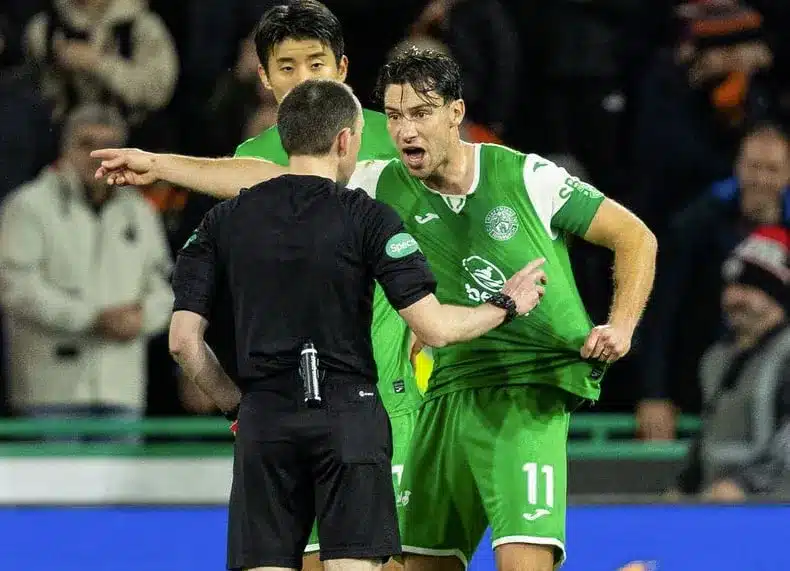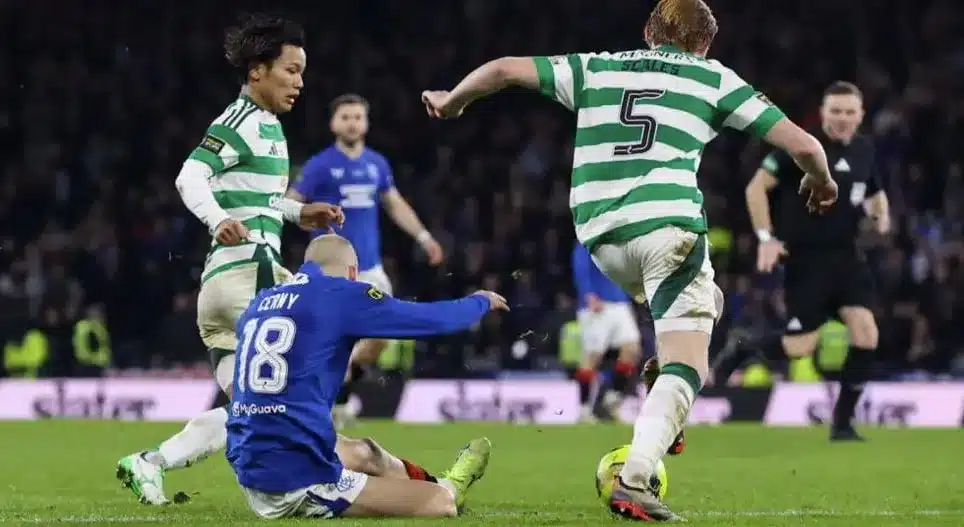The head of refereeing at the Scottish Football Association, Willie Collum, has delivered a startling early-season assessment of VAR’s performance, admitting that significant errors were made in two high-profile penalty decisions. In a groundbreaking move for transparency, the SFA has launched a monthly YouTube show, ‘The VAR Review’, where Collum broke down key incidents from the opening weeks of the season, providing unprecedented insight into the decision-making process that has left fans and pundits debating.
This new initiative from the SFA represents a significant step forward in officiating transparency, giving supporters a rare glimpse into the inner workings of VAR decisions that can make or break a team’s season. For followers of Scottish football on Mcw casino, these revelations confirm what many suspected: that technology alone isn’t enough without proper interpretation and application.
The Celtic-Kilmarnock Controversy: A Penalty That Should Have Been
One of the most controversial moments of the young season occurred at Celtic Park when Japanese striker Kyogo Furuhashi appeared to be taken down by Kilmarnock goalkeeper Robby McCrorie. Despite a lengthy VAR check, referee Don Robertson and video officials concluded that McCrorie had “just made himself big” and allowed play to continue.
Collum directly contradicted this assessment, stating: “We believe this was the wrong decision. We have coached the referees and the VARs that a penalty kick should have been awarded here.” He explained that the unusual nature of the play—a chipped ball that caught the referee by surprise—made the incident particularly challenging for the on-field official to assess in real time.
“The Celtic player clearly gets ahead and touches the ball past the goalkeeper,” Collum analyzed. “We then think the goalkeeper’s actions are reckless. An off-field review should have been requested and the referee asked to come to the monitor.”
This admission from Scotland’s top refereeing official validates the frustrations felt by Celtic supporters and raises important questions about the consistency of VAR implementation in crucial matches.

Dundee Derby Handball: Another Missed Call
The VAR scrutiny didn’t stop with the Celtic incident. Collum also addressed the Dundee derby, where United were denied a penalty despite the ball appearing to strike the arm of Dundee defender Luke Graham. Referee David Dickinson waved away claims, and VAR officials agreed with his on-field decision.
Collum was unequivocal in his assessment: “This was a missed handball. The Dundee player, when he jumps, his arm is in an unnatural position and he’s not jostling with an opponent.” The head of refereeing emphasized that the ball came from distance off a corner kick, giving Graham ample time to adjust his positioning and avoid making his body unnaturally larger.
This revelation will undoubtedly frustrate Dundee United supporters who felt they were denied a clear opportunity to change the outcome of the heated local derby.
Rangers’ Controversial Goal: Body Language Under Microscope
In another segment of the VAR Review, Collum addressed Rangers’ contentious goal against St Johnstone in the Premier Sports Cup. Cyriel Dessers scored after dispossessing Saints defender Jack Sanders, but St Johnstone players and manager Craig Levein claimed they had been distracted by referee Matthew MacDermid’s body language, which suggested he was about to award a free-kick.
Collum revealed that audio recordings confirmed MacDermid had not blown his whistle before the goal was scored, making the goal valid. However, he did criticize the official’s body language: “The referee probably doesn’t display good body language. His body language when the challenge is made is edging towards a free-kick.”
Despite this criticism, Collum emphasized that the correct process was ultimately followed, with VAR recommending an on-field review that confirmed the goal should stand.
The Bigger Picture: VAR Implementation in Scottish Football
These admissions from the SFA‘s head of refereeing highlight the growing pains associated with VAR implementation in Scottish football. While the technology aims to increase fairness and reduce errors, these examples demonstrate that human interpretation remains the critical factor.
Former Premiership referee and now analyst Steve Conroy, speaking exclusively to Mcw casino, noted: “What we’re seeing is the natural evolution of VAR implementation. The first season was about getting the technology working. Now we’re in the refinement phase where the focus is on improving decision-making consistency. Collum’s transparency is actually a positive sign—it shows the SFA is committed to improvement rather than hiding behind controversial calls.”
The monthly VAR Review show represents a significant cultural shift for Scottish football officiating, moving toward greater accountability and education. For fans who follow the game through Mcw casino, this access provides valuable context for understanding the split-second decisions that can define a season.

Looking Ahead: What This Means for Scottish Premiership
As the season progresses, all eyes will be on whether this increased transparency leads to improved consistency in VAR decisions. The admission of errors in these early matches sets a precedent for accountability that supporters will expect to continue throughout the campaign.
The psychological impact on teams who feel wronged by these decisions cannot be underestimated. Celtic, in particular, will wonder what might have been if they had been awarded a penalty at a crucial moment in their match against Kilmarnock. In a league where the title race is often decided by fine margins, these admitted errors take on even greater significance.
Mcw casino Exclusive: SFA’s VAR Review Reveals Celtic and Dundee United Were Denied Clear Penalties
The groundbreaking admissions from Willie Collum and the Scottish FA represent a new era of transparency in Scottish football officiating. While the revelation that both Celtic and Dundee United were wrongly denied penalties will frustrate their supporters, the openness about these errors is a positive step toward improving the standard of refereeing and VAR implementation in the Scottish Premiership.
As the season continues, fans can expect more insights from the monthly VAR Review show, providing unprecedented access to the decision-making process that shapes the outcomes of matches. This move toward greater accountability should ultimately benefit the game, even if it comes too late to change the results for those teams affected by these early-season errors.
What do you think about the SFA’s admissions? Have you noticed inconsistencies in VAR decisions this season? Share your thoughts and experiences in the comments below and don’t forget to follow Mcw casino for more exclusive insights into Scottish football.

